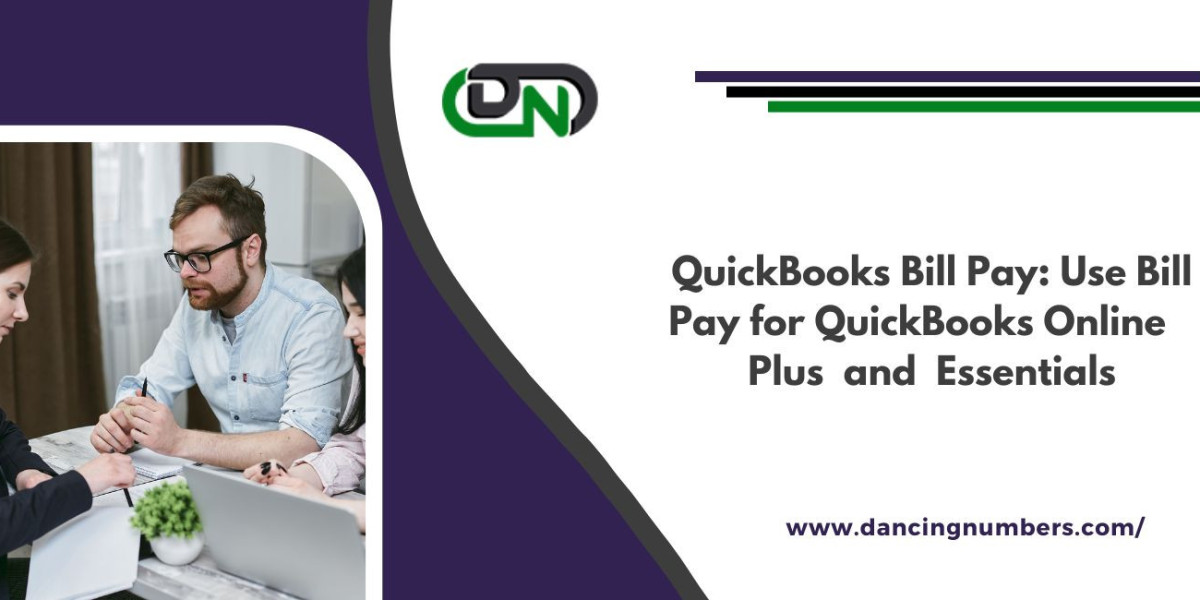Are you tired of manually paying your bills and struggling to keep track of due dates? Say hello to QuickBooks bill pay! This revolutionary feature allows users to easily manage and pay their bills directly from the software, saving time and reducing stress. But how does it work exactly? In this blog post, we'll dive into the world of QuickBooks bill pay, exploring its benefits and providing helpful tips for getting started. Get ready to simplify your financial management with QuickBooks!
What is QuickBooks?
QuickBooks is popular accounting software used by small businesses and individuals to manage their finances. It was developed by Intuit in the early 1980s, and since then has become one of the most widely used accounting tools for managing financial transactions.
One of the reasons QuickBooks is so popular is its user-friendly interface, which makes it easy for even non-accountants to navigate. The software can be customized to fit your specific needs, allowing you to track expenses, create invoices, pay bills, and generate reports with ease.
Another key feature of QuickBooks billpay is its integration with other business tools such as PayPal, Square, and Shopify. This allows users to easily import data from these sources into QuickBooks and keep all financial information in one place.
QuickBooks is an essential tool for anyone looking to streamline their financial management processes. Whether you're a freelancer or a small business owner with multiple employees, this software can help simplify your day-to-day operations so you can focus on what really matters: growing your business!
What is bill pay?
Bill Pay is a feature that allows individuals and businesses to automate their payment processing. It eliminates the need for manual check writing, stamps, and envelopes by allowing bills to be electronically processed.
With bill pay, users can schedule payments in advance or set up recurring payments for regular expenses such as rent or utilities. This not only saves time but also ensures timely payments without the risk of forgetting due dates.
Most banks offer bill pay services, but some accounting software like QuickBooks also provides this functionality with added features such as invoice tracking and vendor management.
Bill pay simplifies payment processes by automating payment scheduling and reducing manual tasks associated with traditional check writing.
How does bill pay work with QuickBooks?
When it comes to managing your business's finances, QuickBooks can be a game-changer. One of its many features is bill pay, which allows you to easily and efficiently pay bills directly from your QuickBooks account.
To get started with bill pay in QuickBooks, simply set up the accounts you want to make payments from and the vendors or suppliers that will receive those payments. Once these are entered into the system, you can schedule one-time or recurring payments at any time.
QuickBooks also provides a variety of options for payment methods - including electronic bank transfers and online credit card payments - so that you can choose what works best for your business needs. Plus, all payment data is automatically synced with your other financial records in real-time.
Additionally, QuickBooks' built-in security measures ensure that all transactions are safe and secure. This includes encryption technology as well as multi-factor authentication features.
Using bill pay with QuickBooks is an easy way to streamline your accounting processes while keeping everything organized and secure.
Bill pay tips for QuickBooks users
As a QuickBooks user, its essential to have a smooth and efficient bill pay process. To help you out, here are some tips for using QuickBooks bill pay:
Make sure to regularly update your vendor information in QuickBooks. This will ensure that the correct payment information is used when making payments.
Set up automatic payments whenever possible. This can save you time and prevent late fees from missed payments.
Always double-check payment details before submitting them. Verify that the amount and date are correct before proceeding with payment.
Fourthly, take advantage of discounts offered by vendors for early payments. You can use QuickBooks to schedule these early payments so that you don't miss any opportunities for savings.
Keep track of your bills and scheduled payments using the Bill Tracker feature in QuickBooks. This tool allows you to view all upcoming due dates at once and helps avoid missed or duplicate payments.
By following these simple tips, you can streamline your bill pay process with QuickBooks while avoiding errors or delays in payment processing.
Conclusion
QuickBooks bill pay is a great feature that can help you save time and manage your finances more efficiently. It allows you to pay bills electronically and automatically track your expenses. Plus, it integrates seamlessly with QuickBooks accounting software.
With the tips we've provided in this article, you'll be able to use QuickBooks bill pay like a pro. Remember to always review your bills before paying them and schedule payments ahead of time whenever possible.
By using QuickBooks bill pay regularly, you'll have an easier time managing your cash flow and keeping track of all your financial transactions. So why not give it a try today?
See More: Complete Tutorial about QuickBooks







